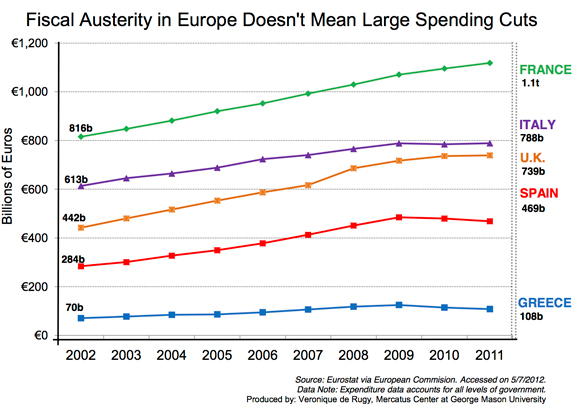It’s surprising it’s taken this long for the Greek government to consider selling off excess government-owned land as a way to address some of their debt issues:
There’s little that shouts “seriously rich” as much as a little island in the sun to call your own. For Sir Richard Branson it is Neckar in the Caribbean, the billionaire Barclay brothers prefer Brecqhou in the Channel Islands, while Aristotle Onassis married Jackie Kennedy on Skorpios, his Greek hideway.
Now Greece is making it easier for the rich and famous to fulfill their dreams by preparing to sell, or offering long-term leases on, some of its 6,000 sunkissed islands in a desperate attempt to repay its mountainous debts.
The Guardian has learned that an area in Mykonos, one of Greece’s top tourist destinations, is one of the sites for sale. The area is one-third owned by the government, which is looking for a buyer willing to inject capital and develop a luxury tourism complex, according to a source close to the negotiations.
However, if you’re in the market for a lovely little Greek island, you should also consider that land costs are going to be only a small part of your investment:
Only 227 Greek islands are populated and the decision to press ahead with potential sales has also been driven by the inability of the state to develop basic infrastructure, or police most of its islands. The hope is that the sale or long-term lease of some islands will attract investment that will generate jobs and taxable income.
Also on the block for sale are other government monopolies:
In its battle to raise funds, the country is also planning to sell its rail and water companies. Chinese investors are understood to be interested in the Greek train system, as they already control some of the ports. In a deal announced earlier this month, the Greek government also agreed to export olive oil to China.
Update: Ah, I didn’t notice that the article had originally been published in 2010, hence my expressed surprise that it had taken so long for these measures to be considered.




